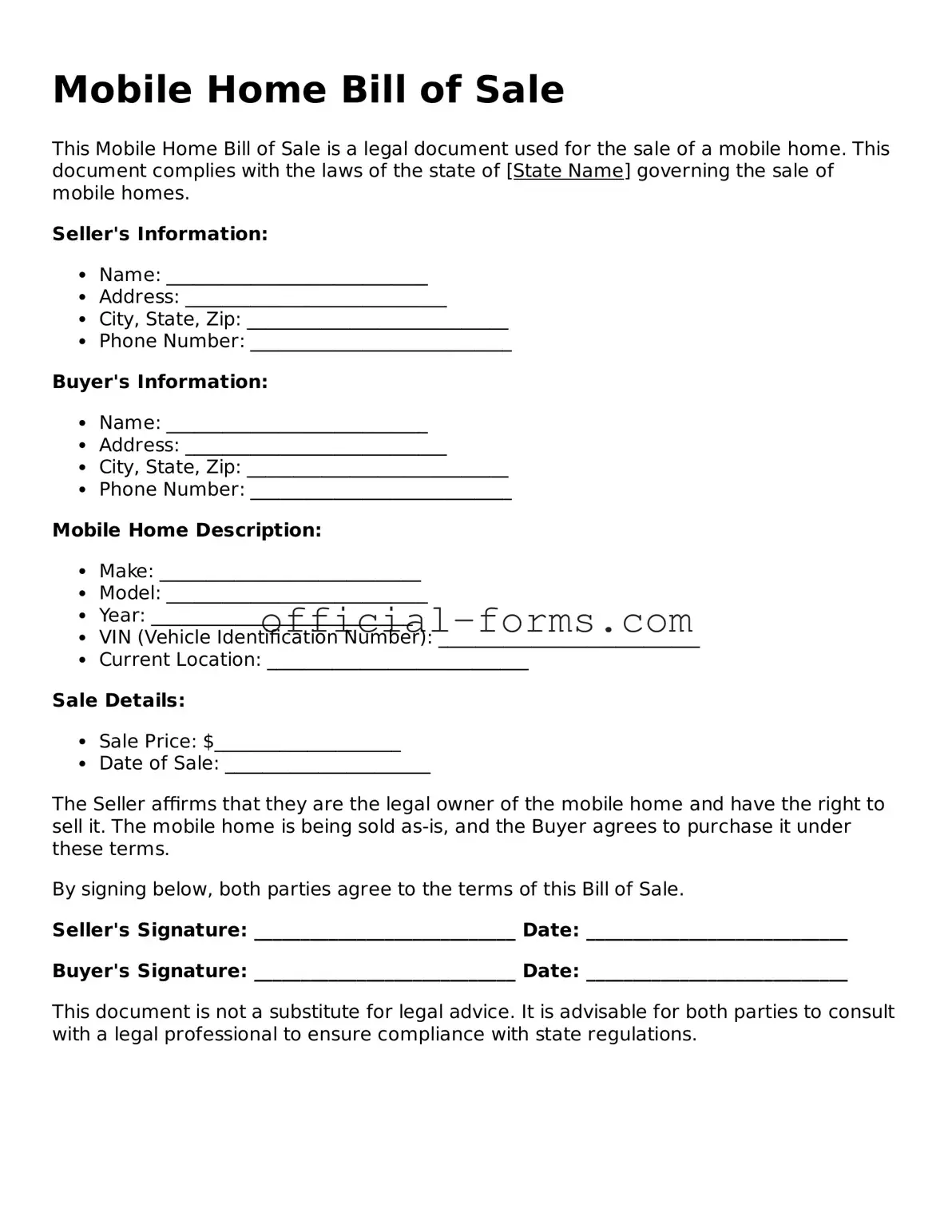Filling out a Mobile Home Bill of Sale form can seem straightforward, but many people make common mistakes that can lead to problems down the line. One frequent error is not including all required information. Buyers and sellers must provide details such as names, addresses, and identification numbers. Missing even one piece of information can create confusion or make the document invalid.
Another mistake is neglecting to accurately describe the mobile home. It’s important to include the make, model, year, and Vehicle Identification Number (VIN). Without these details, it may be difficult to prove ownership or identify the mobile home in the future.
People often forget to sign the document. A Bill of Sale is not valid without the signatures of both the buyer and the seller. This step is crucial, as it indicates that both parties agree to the terms of the sale. In some cases, witnesses or notarization may also be required, depending on state laws.
Additionally, failing to specify the sale price can lead to misunderstandings. It's essential to clearly state how much the buyer is paying for the mobile home. This not only helps in the transfer of ownership but can also be important for tax purposes.
Some individuals overlook the importance of including any warranties or disclosures. If the mobile home has any defects or issues, these should be disclosed in the Bill of Sale. Not doing so could result in legal disputes later on.
Another common error is not keeping a copy of the completed form. After signing, both parties should retain a copy for their records. This can serve as proof of the transaction and protect both the buyer and seller if any issues arise.
People sometimes use outdated forms. Laws and regulations can change, so it’s important to ensure that the form being used is the most current version. Using an outdated form may lead to complications in the sale process.
Additionally, some sellers fail to check for any liens on the mobile home. If there are outstanding debts or liens, the new owner could face unexpected financial responsibilities. It’s wise to conduct a thorough check before finalizing the sale.
Lastly, many individuals rush through the process. Taking the time to carefully review the form before submitting it can prevent mistakes. A little patience can save both parties from potential headaches in the future.

